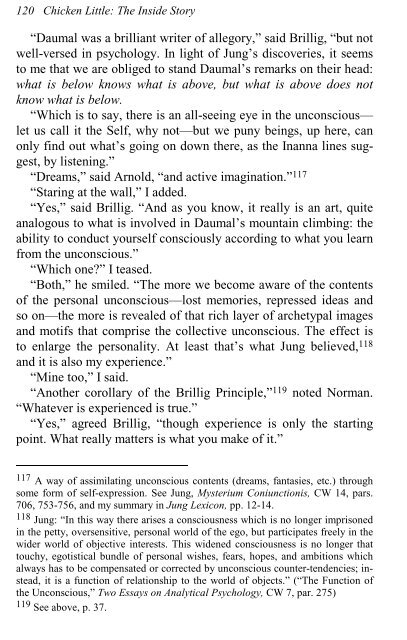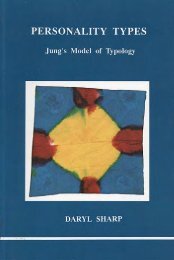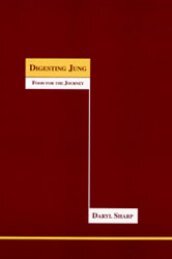Chicken Little: The Inside Story (A Jungian ... - Inner City Books
Chicken Little: The Inside Story (A Jungian ... - Inner City Books
Chicken Little: The Inside Story (A Jungian ... - Inner City Books
You also want an ePaper? Increase the reach of your titles
YUMPU automatically turns print PDFs into web optimized ePapers that Google loves.
120 <strong>Chicken</strong> <strong>Little</strong>: <strong>The</strong> <strong>Inside</strong> <strong>Story</strong><br />
“Daumal was a brilliant writer of allegory,” said Brillig, “but not<br />
well-versed in psychology. In light of Jung’s discoveries, it seems<br />
to me that we are obliged to stand Daumal’s remarks on their head:<br />
what is below knows what is above, but what is above does not<br />
know what is below.<br />
“Which is to say, there is an all-seeing eye in the unconscious—<br />
let us call it the Self, why not—but we puny beings, up here, can<br />
only find out what’s going on down there, as the Inanna lines suggest,<br />
by listening.”<br />
“Dreams,” said Arnold, “and active imagination.” 117<br />
“Staring at the wall,” I added.<br />
“Yes,” said Brillig. “And as you know, it really is an art, quite<br />
analogous to what is involved in Daumal’s mountain climbing: the<br />
ability to conduct yourself consciously according to what you learn<br />
from the unconscious.”<br />
“Which one?” I teased.<br />
“Both,” he smiled. “<strong>The</strong> more we become aware of the contents<br />
of the personal unconscious—lost memories, repressed ideas and<br />
so on—the more is revealed of that rich layer of archetypal images<br />
and motifs that comprise the collective unconscious. <strong>The</strong> effect is<br />
to enlarge the personality. At least that’s what Jung believed, 118<br />
and it is also my experience.”<br />
“Mine too,” I said.<br />
“Another corollary of the Brillig Principle,” 119 noted Norman.<br />
“Whatever is experienced is true.”<br />
“Yes,” agreed Brillig, “though experience is only the starting<br />
point. What really matters is what you make of it.”<br />
117 A way of assimilating unconscious contents (dreams, fantasies, etc.) through<br />
some form of self-expression. See Jung, Mysterium Coniunctionis, CW 14, pars.<br />
706, 753-756, and my summary in Jung Lexicon, pp. 12-14.<br />
118 Jung: “In this way there arises a consciousness which is no longer imprisoned<br />
in the petty, oversensitive, personal world of the ego, but participates freely in the<br />
wider world of objective interests. This widened consciousness is no longer that<br />
touchy, egotistical bundle of personal wishes, fears, hopes, and ambitions which<br />
always has to be compensated or corrected by unconscious counter-tendencies; instead,<br />
it is a function of relationship to the world of objects.” (“<strong>The</strong> Function of<br />
the Unconscious,” Two Essays on Analytical Psychology, CW 7, par. 275)<br />
119 See above, p. 37.










